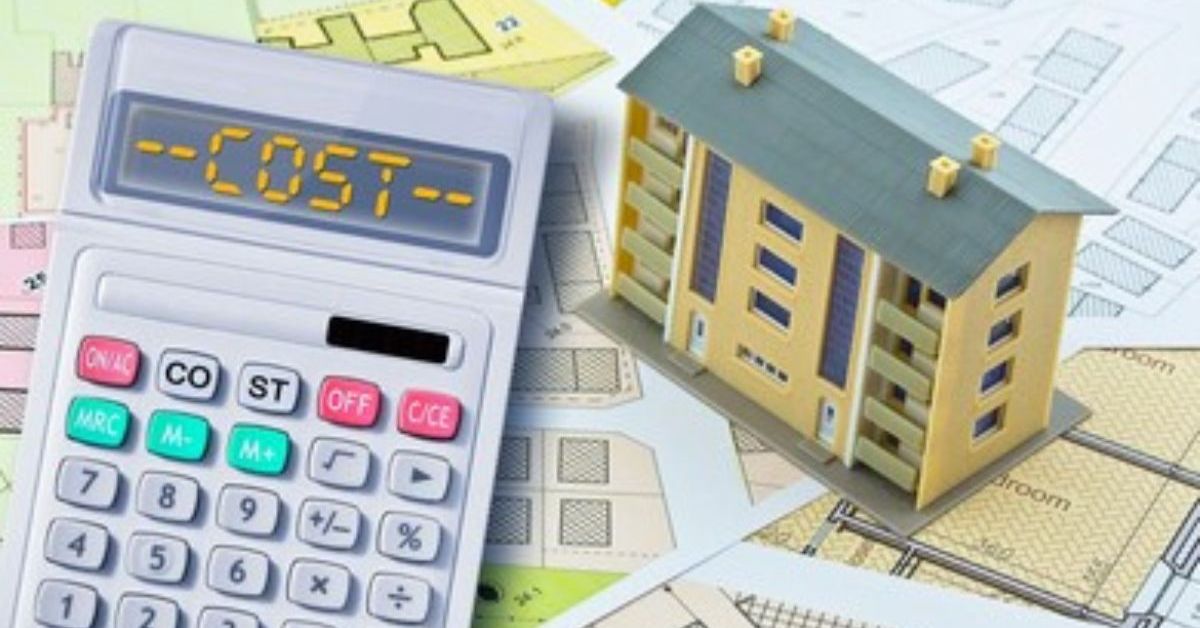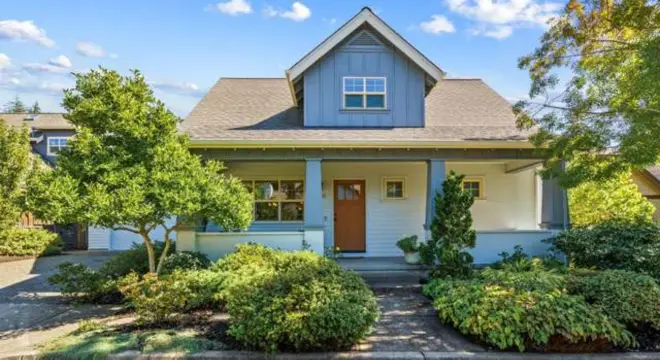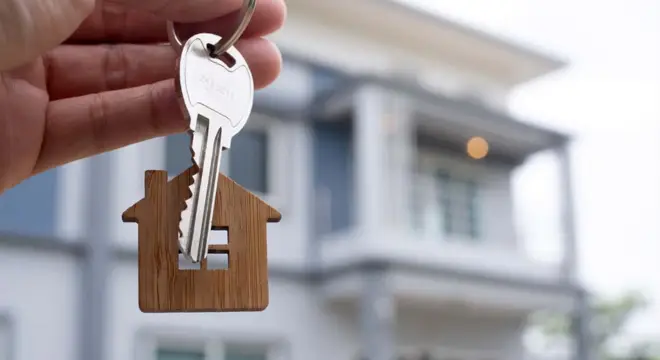First-Time Homebuyer? Ask These 7 Questions Before You Sign Anything
I get it—you’re excited. Owning your first home feels like a huge milestone. You’re probably scrolling listings, checking EMIs, maybe even dreaming about where the couch will go. But here’s the thing most people won’t tell you:
Excitement fades. Regret sticks.
I’ve worked with first-time buyers for over two decades, and one thing is always true: those who ask the right questions early avoid the biggest mistakes later. The rest? They learn the hard way—through stress, surprise expenses, and feeling stuck in a place they can’t afford or don’t love.
This article isn’t here to scare you. It’s here to prepare you. These are 7 brutally honest, often-overlooked questions you need to ask yourself before you commit to buying that “dream” home. They’re not just about money—they’re about mindset, timing, and long-term clarity.
Because buying a home isn’t just a transaction. It’s a decision that shapes your next decade.
Ready? Let’s start with the one question no one wants to ask—but absolutely should:
Are You Really Ready to Buy a Home?
Let’s be honest—just because you’re “tired of paying rent” doesn’t mean you’re ready to buy a house. I’ve seen too many first-time buyers rush in, only to feel stuck, stressed, or broke six months later.
Before anything else, you need to check two things: your financial readiness and your lifestyle stability. Not just your bank balance—but your real-life ability to handle ownership.
Ask yourself:
- Do I have a stable income that’s not going away in the next 1–2 years?
- Can I handle a sudden $1,200 USD expense if the water tank bursts or the AC dies?
- Am I emotionally ready to stay in one place for at least 3–5 years?
If you flinch at any of those, slow down. Renting may feel wasteful, but buying a home too early can do more damage. And if you’re still in school or planning post-grad moves soon, read this guide on things no one tells you about buying a home as a student—it could save you from a costly mistake.
One more thing—don’t ignore your headspace. Buying a home can trigger anxiety, especially if you’re someone who second-guesses big decisions. I’ve worked with clients who bought a home just to “feel adult,” and they regretted it within a year. You don’t want to turn your dream into a burden.
Pro Tip: Before you even talk to a broker or bank, do a simple self-check. Use a calculator like NerdWallet’s readiness test. And talk to one friend who has owned a house for at least 3 years—they’ll tell you what no real estate agent will.
Your Turn:
Have you actually done a self-check—or are you just tired of your landlord? Be honest. Let me know what’s pushing you to buy right now.
What’s Your True Budget—Beyond the Price Tag
Most first-time buyers look at the listing price and think, “I can afford that.” But buying a home isn’t like buying a phone or booking a trip. The price on paper is just the beginning.
You’re not just paying for four walls. You’re paying for closing costs, stamp duty, home insurance, maintenance, and every unexpected thing that goes wrong when you least expect it.
Let’s break it down:
- Down payment (usually 10–20%)
- Closing costs (2–6% of the home’s price)
- Annual maintenance (1–3% of property value)
- Utilities, property tax, society charges
- Moving + furnishing costs (which always go over budget)
I’ve seen people stretch just to hit that EMI number, and then fall apart financially when the water pump breaks or the fridge dies. And they can’t go back—they’re locked in.
Architectural Digest interviewed millennial homeowners who said they underestimated costs by lakhs, simply because no one talked about the real math.
“No one told me my ‘affordable’ home would eat up all my savings within the first 3 months.” — ArchitecturalDigest.com
Even Barbara Corcoran (yes, from Shark Tank) tells first-time buyers: “If you can’t afford the unexpected, you can’t afford the house.”
Pro Tip: Use a home ownership cost calculator from sites like Redfin or NerdWallet. Don’t just plan for best-case EMIs—plan for worst-case expenses.
Quick gut-check for you:
Are you budgeting for buying the house—or for owning it? Big difference.
Drop a comment or note: What’s one hidden cost you weren’t thinking about until now?
Loan Landscape — Which One Suits You?

Let me say this upfront: your mortgage will shape your financial life for years. And yet, most people treat it like ordering off a fixed menu. FHA? VA? Conventional? Just pick one and hope for the best, right?
Wrong.
Different loans are built for different lives. And if you choose the wrong one, you could end up paying lakhs more over time—or worse, get stuck in a loan that punishes you for wanting to move or refinance later.
Here’s what you should be asking:
- Am I eligible for a low down payment loan (FHA, USDA)?
- Will I stay in this house long enough to justify a fixed-rate mortgage?
- Do I need flexibility or maximum savings over time?
- What are prepayment penalties or fine print I’m missing?
Also, lenders won’t always tell you this, but loan approval doesn’t mean affordability. Banks approve based on debt-to-income ratio—not based on your lifestyle, future plans, or what happens if one income disappears.
Pro Tip: Always talk to at least 2–3 lenders, including online mortgage brokers and a credit union if you can. They all structure loans differently. And be clear about your 5-year life plan—that’s how you choose the right loan.
Quick gut-check for you:
Have you compared interest rates and loan terms yet—or just assumed your bank’s offer is the only option?
Let me know if you’re confused between loan types—I’ll break it down for your scenario.
Neighborhood & Timing — Visit at Different Times
Here’s a harsh truth no one tells you: You’re not just buying a home. You’re buying its neighborhood. And a place that feels peaceful on Sunday morning can feel like a war zone on Friday night.
I’ve had clients who loved a house, moved in, and then found out the neighbor runs loud parties every weekend. Or the street gets waterlogged every time it rains. Or there’s no streetlight near their gate—and they don’t feel safe coming home late.
And guess what? Once you’ve signed, you can’t undo that.
Barbara Corcoran says it best: “Visit the home at multiple times—morning, night, weekend. You’ll learn what no listing photo shows.”
NYPost Interview
Reddit is full of real regrets like this. One user in r/FirstTimeHomeBuyer shared:
“I wish I had visited the street at 10PM. Turns out there’s a shady bar nearby and it gets loud and sketchy at night.”
Reddit Thread
So what do you need to check?
- What’s traffic like at rush hour?
- Are there street dogs, poorly lit roads, or security issues?
- Is the local market actually walkable—or just “5 mins by car” like the listing says?
- Are there any planned construction projects nearby?
And most importantly: Do you feel safe, welcome, and at ease when you’re walking around? If not, no property deal is worth that.
Pro Tip: Talk to 1–2 neighbors casually. Ask: “How do you like living here?” or “Anything I should know about the area?” People often reveal what agents won’t.
Gut-check time:
Have you seen the area at night? Have you talked to anyone who actually lives there?
Share your thoughts—or any weird red flags you’ve already spotted.
Inspection & Maintenance — Old vs New Costs
Let me ask you straight: Are you prepared to spend $600 or more within the first year on things you didn’t see coming?

Because that’s what happens when you skip the right inspections—or assume that a “new-looking” home is problem-free. I’ve had clients who moved in and then discovered plumbing issues, roof leaks, pest infestations, or even faulty wiring within weeks.
And no, these don’t show up in listing photos.
A proper home inspection is non-negotiable. But many buyers either:
- Skip it to “close faster”
- Get one but don’t understand the report
- Don’t ask for specialized add-ons (like pest, radon, structural, or sewer line checks)
According to TrustThePineapple.com, “Buyers who skip radon and pest inspections are often the ones who regret it most—because these are invisible problems until they explode.”
Here’s what should be on your list:
- Roof age + structural cracks
- Plumbing, drainage, and dampness
- Electrical panel & load capacity
- Termites, rodents, pests
- AC, geysers, and appliances (esp. in resale homes)
- Water pressure + quality
- Neighborhood drainage during rains
You also need to budget 1–3% of the home’s value each year for maintenance. That’s not optional. Stuff ages, breaks, and needs replacing—whether it’s a $75,000 condo or a $145,000 villa.
Pro Tip: Don’t rely on the seller’s word. Hire an independent home inspector—not the broker’s cousin or the seller’s guy. And always ask for inspection reports in writing, not just “haan haan sab theek hai.”
Quick gut-check for you:
Have you set aside money for surprise repairs? Or are you banking on luck and fresh paint?
If you’ve already seen something sketchy during a site visit—drop it in the comments. I’ll tell you if it’s a red flag or fixable.
Exit Strategies & Future Value
No one buys their “forever home” anymore—especially not on the first go. But most first-time buyers plan like they’ll live there forever. And that’s a problem.
Here’s the truth: life changes fast. You might change jobs, grow your family, want to move cities, or simply outgrow the space. If you haven’t thought about what happens after 3–5 years, you could be stuck with a home you can’t sell, rent, or exit without a financial hit.
As Investopedia puts it, “The best starter homes are the ones with strong resale or rental potential. You’re not just buying for today—you’re investing in flexibility.”
Ask yourself:
- Is this home easy to resell? (Good layout, floor, location, builder reputation)
- Could I rent it out later if needed?
- What’s the growth potential in this area?
- Are there major infrastructure projects planned that might boost—or kill—value?
Most listings brag about price per sq ft, but rarely tell you about future value. That’s your job to investigate. Look at trends, check if big companies are setting up nearby, or whether metro lines are being extended. All of this affects resale.
And don’t forget: liquidity matters. A beautiful home that no one wants to buy 3 years later is not an asset. It’s a trap.
Pro Tip: Even if you love the house, think like a future buyer. Would you buy this home again 5 years from now? If not, why are you doing it now?
Gut-check for you:
If you had to move in 2 years, could you sell or rent this place without loss or headache?
Comment below if you’ve already spotted an area with high appreciation—or one that looks great now but feels risky.
Agent, Lender & Process — Who Should You Work With
Your home buying experience is only as smooth as the people you work with. Period.

I’ve seen first-time buyers work with pushy agents who ghost them after the deal, or lenders who promise low EMIs but bury insane clauses in fine print. And by the time buyers realize what’s happening, they’ve already signed.
Let’s be real: you need a solid team, not just random names off Google or your chacha’s WhatsApp group.
Here’s who you absolutely need:
1. A Buyer-Focused Real Estate Agent
Not one who’s also representing the seller.
Ask:
- How many first-time buyers have you worked with?
- Can you show me properties below budget too, not just maxed out ones?
- What’s your commission model—are you motivated by price?
A good agent will point out flaws, not just features. If they push you to “hurry” or guilt you into bidding, walk away.
2. A Transparent, Competitive Lender
Never go with the first bank that pre-approves you. Shop around. Ask about:
- Processing fees
- Interest rate flexibility
- Hidden insurance or “bundled” costs
- Prepayment penalties
As NerdWallet advises, “Compare loan estimates from at least three lenders—even small differences in interest rate or fees can save thousands.”
Also: get everything in writing, especially verbal “assurances.”
3. A Sharp Legal/Documentation Professional (if not provided)
Sometimes a broker’s in-house legal team isn’t enough. Consider a second opinion for:
- Title verification
- Builder compliance
- Society transfer norms
- Dispute history (ask the RERA portal)
Pro Tip: Don’t go solo. Even if you’re smart with money, real estate paperwork is a maze. Surround yourself with people who have nothing to gain from your decision.
Even if you’re smart with money, real estate paperwork is a maze. Before signing anything, make sure you understand the 16 essential home buying documents—and which ones you should never sign blindly.
Quick gut-check:
Have you chosen your agent and lender—or are you just going with whoever showed up first?
If you’ve already gotten a loan quote or agent referral, drop it below. I’ll tell you what questions to ask them before you commit.
Final Gut-Check: Ask Before You Regret
You’ve made it this far, which already puts you ahead of 90% of first-time buyers. But now comes the real test—not just reading advice, but acting on it.
Before you sign anything, ask yourself:
- Am I truly ready—financially and emotionally?
- Have I calculated the real cost beyond just the EMI?
- Do I understand my loan options and fine print?
- Have I seen the neighborhood at night and on weekends?
- Did I check for hidden maintenance issues with a solid inspector?
- Can I exit this house in 3–5 years without regret or loss?
- Am I working with people I trust—not just the ones who were easiest to find?
Buying your first home doesn’t have to be stressful. But it will be if you skip these questions and just “go with the flow.” And trust me—you don’t want to discover the truth after the down payment clears. Most regrets I’ve seen over the years didn’t come from bad houses. They came from rushed decisions, blind spots, and common home buying and selling mistakes that are easy to avoid if you know what to look for.
Your Turn:
What’s one thing you’re still unsure about? Drop it in the comments —no pressure, no sales. Just honest help.
And if this article saved you from making a mistake, pass it on to someone who needs it.
So, Should You Buy That Home?
Buying your first home isn’t just a financial decision—it’s a deeply personal one. It’s about where your time, energy, and money will go for the next several years. And once you sign those papers, there’s no “undo” button.
That’s why these six questions aren’t just checklist items. They’re reality checks.
Most regrets I’ve seen over the years didn’t come from bad houses. They came from rushed decisions, blind spots, and trusting the wrong people. You don’t need to be perfect—you just need to be informed, honest with yourself, and willing to slow down when something doesn’t feel right.
So take a breath. Ask the hard questions. And when you do move forward, do it with full clarity—not just hope.
You’re not just buying a home. You’re shaping the next chapter of your life.
Make sure it’s one you’ll be proud to live in.
Want More Real, No-Fluff Home Buying Advice?
This guide is just the start.
Visit Build Like New for more step-by-step guides, expert checklists, and honest insights—written for first-time buyers who want to get it right the first time.
No hype. No jargon. Just answers.
Disclaimer: This guide is for informational purposes only and does not constitute financial, legal, or real estate advice. Always consult with a certified professional before making any property-related decisions.


